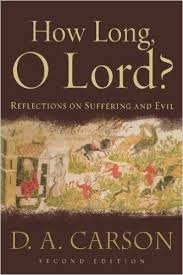
Melanchthon on the Humanities and Theology
In Erika Rummel's The Humanist-Scholastic Debate in the Renaissance and Reformation, we read this from Melanchthon, who is discussing the nature of education, and the role of humane studies:
"If the humanities have not been taught, what kind of theologians will we create?" Melanchton then says: "but I know how much to attribute to the humanities, lest anyone think I am detracting anything from the Holy Spirit here" (Rummel, 144).
- Details
- Category: Recommended Reading Recommended Reading
- Published: 02 September 2015 02 September 2015
- Hits: 2245 2245
Calvin on the Eschatological Trajectory of Creation
In his short piece, Simon Kennedy discovers a helpful quote from Calvin on the nature of creation, and its eschatological trajectory.
- Details
- Category: Recommended Reading Recommended Reading
- Published: 02 September 2015 02 September 2015
- Hits: 2161 2161
Luther and Languages
One more reason to like Luther:
Luther recommends that a good library contain: "Holy Scripture in Latin, Greek, Hebrew, German, and in whatever other languages it may be available. Then there should be the best and oldest commentaries, if I could find them, in Greek, Hebrew and Latin. Then books that aid us in acquiring the languages."
(quoted in Erika Rummel, The Humanist-Scholastic Debate, 115).
- Details
- Category: Recommended Reading Recommended Reading
- Published: 02 September 2015 02 September 2015
- Hits: 2151 2151
The Religious War Against the South
It is striking to witness the current war on the South and its symbols. Those of us with some sort of connection to the South, or some sort of sympathy with the South might be forgiven for asking (either aloud or to ourselves) if in fact perhaps Reconstruction never really ended.
Jennifer Steinhauer has written a piece for the New York Times, "Historical Symbols in the Midst of a 'Purge Moment'" (September 1, 2015). The piece surveys some of the recent developments--mainly the current trend whereby there is great pressure to remove this or that symbol of the South (she touches on more than the South, by the way). Thus, there is pressure around the nation to "purge" symbols of John C. Calhoun, Robert E. Lee, and others from display. There are a lot of reasons to oppose such moves, but that is not really not my interest here. Rather, my interest is the intriguing title of her essay, and what it reveals.
Steinhauer's piece uses an important word: purge. Our English word "purge" comes from Latin. The Latin verb "purgo, purgare, purgavi, purgatum" means: "to cleanse, clean; to clear, clear away, remove; to clear of a charge; to excuse, justify; to refute; to purify ritually; to purge (the body)" (John Traupman's Latin Dictionary).
Given the nuances and possible connotations of the Latin word, it is understandable that in the history of the West the word "purge" has been used often in an explicitly religious or theological sense. And I suspect what we are witnessing in our day is a certain kind of religious crusade to cleanse our culture of certain symbols. That is: our current cultural elites are engaging in their own type of ritual purification.
Conservatives err by not grasping this. I suspect it is important to grasp that all culture is in one way or another religion externalized (see Henry Van Til, The Calvinistic Concept of Culture or Abraham Kuyper's Lectures on Calvinism). One of liberalism's great moves has been to advance a certain vision of cultural reality while hiding the fact that this vision of reality is theological and religious at its core. It has been, from a strategic standpoint, utterly brilliant.
We only think that the religious wars stopped in the 1600s. They never really stopped. The current war on the South and its symbols is simply a particularly interesting version of religious warfare. And occasionally even the New York Times gets this right by calling the current effort by its true name, a purging.
- Details
- Category: Recommended Reading Recommended Reading
- Published: 02 September 2015 02 September 2015
- Hits: 2738 2738
Don Carson on Compatibilism

Don Carson's How Long, O Lord? Reflections on Suffering and Evil is a good book. Here is chapter 11, "The Mystery of Providence".
- Details
- Category: Recommended Reading Recommended Reading
- Published: 01 September 2015 01 September 2015
- Hits: 3098 3098
Bavinck on Christianity and Culture
Bavinck can write:
'A priest in the Lord’s temple, the believer is therefore king of the whole earth. Because he is a Christian, he is a man in the full and truest sense.'
Bavinck goes on:
'The Christian is the true man, on every front and in every domain. Christianity is not opposed to nature, but to sin. Christ came, not to destroy the works of the Father, but only those of the devil.'
And back to Bavinck on Nature and Grace. Jan Veenhof, summarizing Bavinck, can write:
'Bavinck’s thesis that reformation through grace is more than mere repristination is no denial of his foundational principle that grace restores nature.'
- Details
- Category: Recommended Reading Recommended Reading
- Published: 31 August 2015 31 August 2015
- Hits: 2262 2262